- Logos Bible Study App
- Ways to Use Logos
- Group Solutions
- Shop by Language
- Download & Use
- 2025 Libraries (Best Value)
- Vocational Libraries
- Denominational Libraries (NEW)
- Books & Courses
- Online Courses
- Logos for Students & Faculty
- Digital Gift Cards
- Deals
- Support & Training
- Contact Us
- Frequently-Asked Questions
- Community & Content
Classic Studies on Logic (5 vols.)
Digital Logos Edition
Overview
Logic is the art of thinking, applying reason, and finding truth. We use logic every time we interpret new information, draw conclusions, and share our beliefs with others. Logical reasoning is especially important in a world filled with so many different opinions, ideas, and arguments. By using logic, we can figure out which arguments are sound—and which are built on flimsy foundations.
With the Classic Studies on Logic collection, you’ll get a wealth of information in five volumes on the art of reasoning. Learn how to distinguish between valid and invalid deductions. Critically reason through the arguments of others. Strengthen your skills in debate. More than just an academic exercise, studying logic will help you share and defend your beliefs.
In the Logos editions, these volumes are enhanced by amazing functionality. Important terms link to dictionaries, encyclopedias, and a wealth of other resources in your digital library. Perform powerful searches to find exactly what you’re looking for. Take the discussion with you using tablet and mobile apps. With Logos Bible Software, the most efficient and comprehensive research tools are in one place, so you get the most out of your study.

Key Features
- Presents introductions to logic
- Explains the components of strong arguments
- Demonstrates how to distinguish between valid and invalid reasoning
Product Details
- Title: Classic Studies on Logic
- Volumes: 5
- Pages: 2,435
- Resource Type: Monographs
- Topic: Modern Philosophy
Individual Titles
- A System of Logic: Ratiocinative and Inductive, 8th ed. by John Stuart Mill
- Lectures on Logic by C.E. Moberly
- An Introduction to Logic, 2nd ed. by H.W.B. Joseph
- The Principles of Empirical or Inductive Logic by John Venn
- Chance, Love, and Logic: Philosophical Essays by Charles S. Peirce
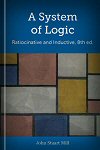
This work details John Stuart Mill’s five principles of inductive reasoning. Mill masterfully introduces a psychological system of logic within a system of empiricist principles, presenting an outline for forming clear arguments.
Contents
- Introduction
- Book I: Of Names and Propositions
- Book II: Of Reasoning
- Book III: Of Induction
- Book IV: Of Operations Subsidiary to Induction
- Book V: On Fallacies
- Book VI: On the Logic of the Moral Sciences
John Stuart Mill (May 20, 1806–May 8, 1873) was an English philosopher and politician. From 1823 to 1858, he served as an administrator in the East Indian Company. From 1865 to 1868, he was a member of parliament where he argued in favor of equality between men and women. His numerous works include Principles of Political Economy, On Liberty, Utilitarianism, The Subjection of Women, and his Autobiography.
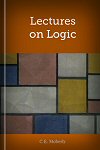
This work provides a thorough introduction to forms of reasoning and how they can help create cogent arguments. Moberly carefully follows the steps presented by great logicians of classical antiquity, explaining and expanding on their work. This volume will be useful to the new and seasoned logician alike.
Charles Edward Moberly (May 18, 1820–July 19, 1893) attended Balliol College at the University of Oxford, was the rector of Coln Rogers, and assistant master of Rugby School. He is also the author of Geography of Northern Europe and A First Praxis of Latin Composition. He is the editor of many works, including MacBeth and The Commentaries of C. Julius Caesar: The Civil War.
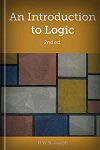
Written by one of Oxford’s leading philosophical minds, this work is a classic exposition of logic. Author H.W.B. Joseph covers everything from the principles of the syllogism, the existence and nature of universals, propositional judgment, causation, and reasoning in mathematics and science. Magnificent in both breadth and depth, this work will be enjoyed by any inquiring mind.
Contents
- Introduction
- Chapter I: Of the General Character of the Enquiry
- Chapter II: Of Terms, and their Principal Distinctions
- Chapter III: Of the Categories
- Chapter IV: Of the Predicables
- Chapter V: Of the Rules of Definition and Division: Classification and Dichotomy
- Chapter VI: On the Intension and Extension of Terms and of their Denotation and Connotation
- Chapter VII: Of the Proposition or Judgement
- Chapter VIII: Of the Various Forms of the Judgement
- Chapter IX: Of the Distribution of Terms in the Judgement: and of the Opposition of Judgements
- Chapter X: Of Immediate Inferences
- Chapter XI: Of Syllogism in General
- Chapter XII: Of the Moods and Figures of Syllogism
- Chapter XIII: Of the Reduction of the Imperfect Syllogistic Figures
- Chapter XIV: Of the Principles of Syllogistic Inference
- Chapter XV: Of Hypothetical and Disjunctive Reasoning
- Chapter XVI: Of Enthymeme, Sorites, and Dilemma
- Chapter XVII: Of the Form and Matter of Inference
- Chapter XVIII: Of Induction
- Chapter XIX: Of the Presuppositions of Inductive Reasoning: The Law of Causation
- Chapter XX: Of the Rules by Which to Judge of Causes and Effects
- Chapter XXI: Of Operations Preliminary to the Application of the Foregoing Rules
- Chapter XXII: Of Non-reciprocating Causal Relations
- Chapter XXIII: Of Explanation
- Chapter XXIV: Of Induction by Simple Enumeration and the Argument from Analogy
- Chapter XXV: Of Mathematical Reasoning
- Chapter XXVI: Of the Methodology of the Sciences
- Chapter XXVII: Appendix on Fallacies
- Index
H.W.B. Joseph (1867–1943) was a fellow of New College at Oxford University. He is also the author of Lectures on the Philosophy of Leibniz, Essays in Ancient and Modern Philosophy, Knowledge and the Good in Plato’s Republic, and Comparison of Kant’s Idealism with That of Berkeley.
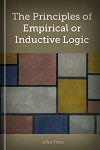
An accessible introduction to inductive logic, this work comprises a series of lectures which John Venn delivered at Cambridge. Many are a commentary on John Stuart Mill’s A System of Logic: Ratiocinative and Inductive, both critiquing and expanding on Mill’s arguments. Venn’s use of real-world examples makes this work especially helpful for those interested in applying inductive logic in debates.
John Venn (August 4, 1834–April 4, 1923) is best-known for creating the Venn diagram. He made great contributions in the fields of symbolic logic, probability theory, and the philosophy of science. He was also a fellow of the Royal Society and president of Caius College at Cambridge.
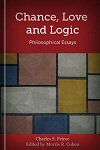
Founder of the school of Pragmatism, Charles S. Peirce had a profound impact on North American philosophy, influencing philosophers such as William James, John Dewey, and Ludwig Wittgenstein. Published posthumously, this volume is a collection of Peirce’s essays on logic, chance, probability, love, and attraction. According to Peirce, the world we live in is often unpredictable, but it is still knowable. This volume will both challenge and intrigue readers.
Contents
- Acknowledgements
- Introduction
- Part 1: Chance and Logic (Illustrations of the Logic of Science)
- The Fixation of Belief
- How to Make Our Ideas Clear
- The Doctrine of Chances
- the Probability of Induction
- The Order of Nature
- Deduction, Induction, and Hypothesis
- Part 2: Love and Chance
- The Architecture of Theories
- The Doctrine of Necessity Examined
- The Law of Mind
- Man’s Glassy Essence
- Evolutionary Love
- Supplementary Essay—The Pragmatism of Peirce, by John Dewey
One of the most original thinkers and system builders of any time, and certainly the greatest philosopher the United States has ever seen.
—Joseph Brent, author, Charles Sanders Peirce: A Life
Peirce’s achievements would take a short book to describe adequately. In philosophy, he founded the most distinctively American school of thought—Pragmatism. As the founder of pragmatism, he was the intellectual hero of both John Dewey and William James. He also created single-handedly the large discipline called Semeiotic—the study of the working of signs—a discipline which engages scholars all over the world. He was perhaps the first modern historian of science, and he was certainly one of the great founders of mathematical logic. He was, in truth, one of the rare thinkers who deserves the overworked title of ‘genius.’
—Hilary Putnam, author, Pragmatism: An Open Question
Charles S. Peirce (September 10, 1839–April 19, 1914) is the founder of the philosophical school of Pragmatism. He received his BA, BS, and MA at Harvard University and taught logic at Johns Hopkins University. His best-known works include The Fixation of Belief and How to Make Our Ideas Clear.
Reviews
5 ratings
Wallace Scaife
10/22/2023

DavePL HI Haoli KI
10/3/2017

Prayson Daniel
11/5/2015